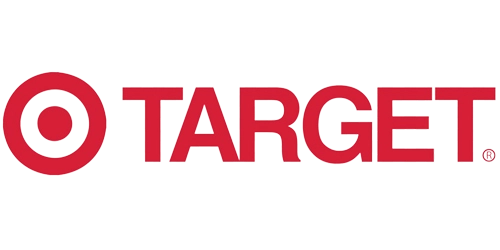
Target is a prominent general merchandise retailer with nearly 2,000 stores across the United States, offering a wide range of products and services. With a focus on community engagement and sustainability, Target commits 5% of its profits to communities annually.
TAGS
Updated 6 months ago
How woke is Target?
Introduction
Target, a well-known retail giant, often finds itself in the spotlight for its progressive policies and support of social justice causes. This review checks out Target’s involvement in various woke initiatives, examining its financial contributions, DEI policies, mandatory training sessions, free speech policies, support for LGBTQ+ initiatives, marketing and branding strategies, stances on traditional family structures, and criticism of conservative values.
Financial Contributions to Progressive Causes
Target has put its money where its mouth is when it comes to progressive causes. The company committed $10 million to support social justice and rebuilding efforts after George Floyd’s death. These funds went to organizations like the National Urban League and the United Negro College Fund. Target CEO Brian Cornell said, “Target stands with the Black community and will continue to fight against systemic racism and inequality”.
They also pledged $2 billion to Black-owned businesses by 2025, aiming to boost economic prosperity in Black communities. These contributions show Target’s dedication to social justice and racial equity initiatives.
Prioritization of DEI Policies
Target’s DEI policies are extensive and cover a lot of ground. The company focuses on creating a workplace that mirrors the diversity of its customers. They have employee resource groups, inclusive leadership programs, and partnerships with external organizations.
“Diversity and inclusion are core values at Target, and we are committed to fostering an inclusive environment where all team members feel valued and respected,” said Target’s Chief Diversity Officer, Kiera Fernandez. During Women’s History Month, Target also supports women-owned brands and encourages career development through its Women’s Business Council. While these efforts aim to promote inclusivity, some critics argue that they prioritize identity over merit.
Mandatory Training Sessions
Target requires its employees to participate in training sessions on unconscious bias and diversity. These sessions are part of their broader DEI strategy to create an inclusive work environment. Fernandez noted, “Our unconscious bias training is essential in helping our team members recognize and address biases, ensuring a more inclusive and respectful workplace”. While some see these training as necessary for reducing bias, others view them as potentially divisive and ideological.
Free Speech Policies
Target has faced heat for its political contributions, especially donations to Republican candidates supporting restrictive voting laws. This sparked backlash from consumers and advocacy groups who felt these contributions contradicted Target’s commitment to diversity and inclusion.
In response, Target reviewed its political contributions policy to better align with its values. “We are committed to transparency and ensuring our political contributions reflect our values of diversity and inclusion,” a Target spokesperson said.
Support for LGBTQ+ Initiatives
Target has been a strong supporter of LGBTQ+ rights. The company frequently features same-sex couples in its marketing campaigns and has signed legal briefs supporting marriage equality. “We believe in equality and are proud to support the LGBTQ+ community through our marketing and policies,” stated Target’s Executive Vice President, Katie Boylan.
Target’s efforts are also reflected in its inclusion in the HRC Corporate Equality Index, which rates companies on their LGBTQ+ inclusive policies and practices.
Marketing and Branding
Target’s marketing and branding are all about pushing messages that support social justice and inclusivity. Their ads often feature diverse families and emphasize equality and representation. “Our marketing reflects the diverse communities we serve, and we are committed to showcasing inclusivity in all our campaigns,” Boylan explained.
Stances on Traditional Family Structures
Target has taken steps that some see as challenging traditional family structures. For instance, they decided to remove gender labels from certain sections of their stores to be more inclusive. This move faced backlash from customers who saw it as unnecessary. “Our goal is to make shopping easier for everyone by removing unnecessary labels,” said a Target spokesperson.
Criticism of Conservative Values
Target’s progressive stances have often been criticized by conservative commentators and customers. The company’s support for social justice causes, diversity initiatives, and LGBTQ+ rights is seen by some as antagonistic to conservative values.
A Newsweek opinion piece argued that Target’s commitment to progressive ideologies has led to financial losses, suggesting that “going woke means going broke”.
Conclusion
Target’s deep involvement in woke initiatives reflects a strong commitment to social justice, diversity, and inclusivity. While these efforts have gained support from progressive groups, they have also sparked criticism and controversy, especially from conservative side.
The backlash against Target’s political contributions and mixed reactions to its marketing strategies highlight the challenges corporations face in balancing social activism with business interests. As consumers increasingly hold companies accountable for their social and political stances, Target’s experience serves as a case study in the evolving landscape of corporate responsibility and consumer expectations.
Our rating is based
